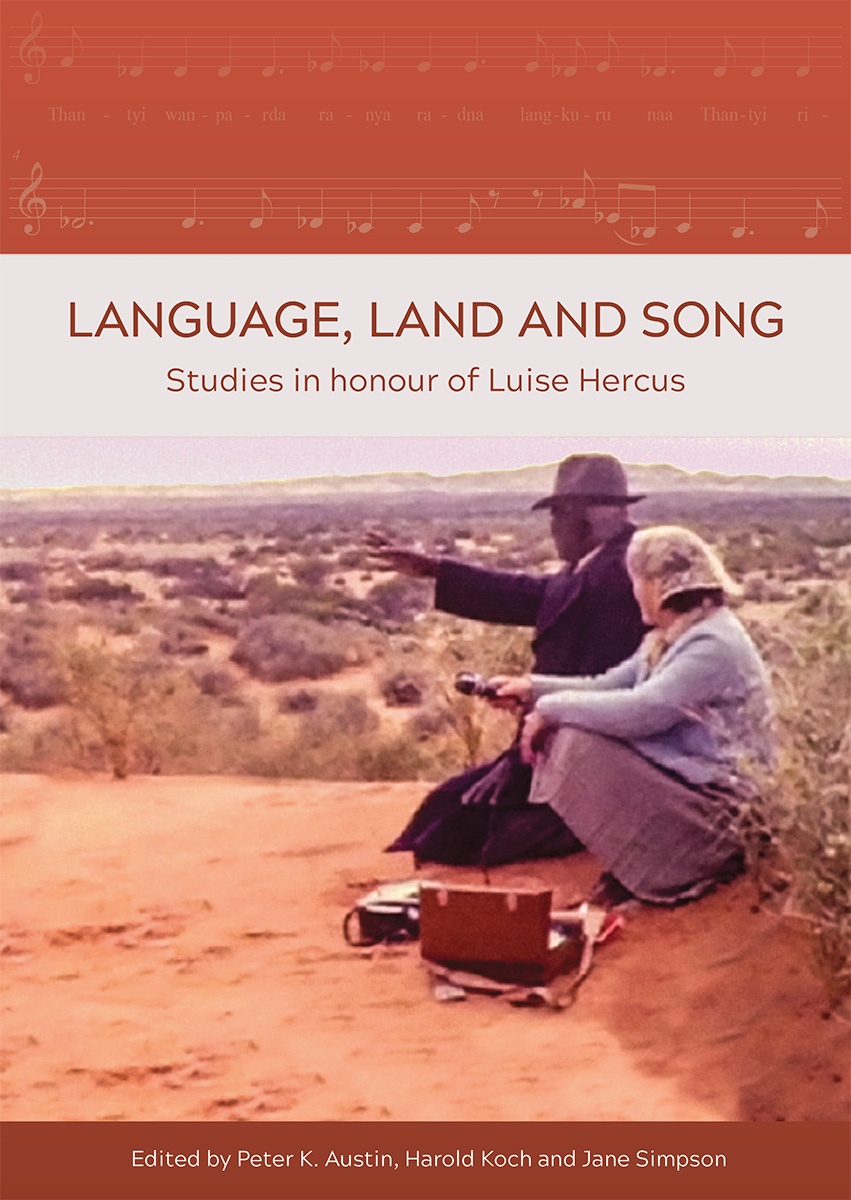
The focus by Batchelor Institute Press on the languages of Indigenous Australia finds an in-depth and scholarly voice in the publication Language, Land and Song, Studies in Honour of Luise Hercus. As the title suggests, this work pays homage to the pioneering linguist Luise Hercus who was a leader in the documentation of Australian Indigenous languages for more than 50 years, having worked closely with Aboriginal language groups/speakers in Victoria, New South Wales, South Australia and Queensland. Hercus began working in Australian language documentation in the 1960s and was ahead of her time in forging a holistic approach to the field by recognising the interrelationship of land, language, story and song in language-based research. Importantly, this holistic approach was also one which recognised the significance of speakers in the documentation process and its outcomes.
Language, Land and Song features the work of 45 contributors who highlight current practice and draw on insights from anthropology, digital humanities, education, ethnography, history, linguistics and musicology. The book shows how the value of this interdisciplinary research has gained more appreciation and clarity since Hercus first set out in the ‘60s to western Victoria to start recording languages there. This work was done in the name of ‘salvage linguistics’, a new branch in the field from the late ‘50s which paralleled a revival of interest in Aboriginal languages that “led linguists to realise that even speakers with lesser knowledge can contribute to the understanding of language, and that language loss and decline itself is worthy of study”. (p. 21)
Language, Land and Song is substantive in content and form – at 470 pages and weighing almost two kilograms. The book comprises 37 chapters which are divided into 7 parts with ‘Part 1: The documentation process: fieldwork, archiving, dissemination’ largely devoted to essays on Hercus, including one from her son Iaian, ‘Travels with my mother’, and Tom Gara’s account of one of her longstanding subjects of research in ‘Luise Hercus’ research in the Lake Eyre Basin, 1965-2005’. David Nathan, editorial advisor for this publication, recalls the lessons he learned directly from Hercus during two fieldwork-based collaborations in the ‘90s in ‘Don’t tell them we’re coming!’: learning to document languages with Luise Hercus’. The ‘Don’t tell them we’re coming’ line refers specifically to their trip to western New South Wales to meet members of the Paakantyi community about a talking dictionary project. Hercus preferred not to give notice of her arrival in the community as a way of working ‘from the bottom up’ rather than ‘top down’, i.e., dealing with language speakers first rather than people from related organisations or bureaucracies who may not give the project any priority. It was also Hercus’ way of not putting any pressure on people to stick to her schedule should they want to fulfil other plans.
On this same trip, Nathan notes the personal and social foundations of Hercus’ approach to her work. Visiting a Paakantyi woman who Hercus first met in the 1960s, Nathan writes: “I learned that Luise was so much more than a researcher, or even a friend; she was part of that community. They talked, and we all drank. Tea, but no field notebooks or audio equipment were unpacked.” (p. 47)
Language, Land and Song was first published in electronic format by EL Publishing to commemorate Hercus’ 90th birthday in 2016. Batchelor Institute Press is proud to fund and publish the book’s first print edition and to be a platform for Hercus’ groundbreaking language research and for the widespread community of researchers and language consultants who have benefited from her work. Hercus passed away on the 15 April 2018 shortly before this edition was completed. Language, Land and Song is published in memoriam Luise Anna Hercus AO, 1926-2018.

Batchelor Institute Press
c/- Post Office
Batchelor NT 0845, Australia
Phone: +61 8939 7352
Email: batchelorpress@batchelor.edu.au
Website: https://batchelorpress.com/
